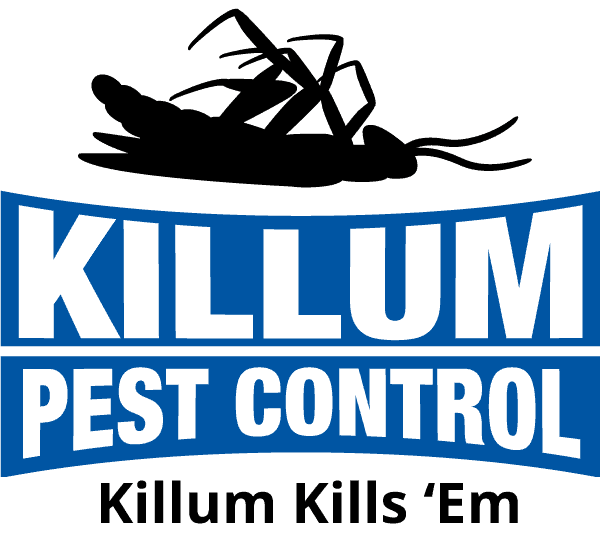Find the Best Ant Exterminator Near Me for Effective and Reliable Solutions
Discover the Value of Insect Control in Keeping a Healthy And Balanced Setting and Therapy Methods

The Duty of Pests in Communities
Pests, frequently seen exclusively as problems, play a multifaceted function in environments that is important for maintaining eco-friendly equilibrium. They contribute substantially to numerous ecological processes, consisting of pollination, nutrition biking, and pest control. For example, numerous insect species, such as bees and butterflies, are vital pollinators for a large range of plants, which consequently supports biodiversity and food manufacturing.
Additionally, bugs act as target for various killers, creating a critical web link in food internet. This connection makes certain the survival of different species and assists control populations within ecological communities (Termite treatment Port Charlotte). Moreover, decomposer parasites, such as particular beetles and fungi, contribute in breaking down raw material, therefore enriching soil and facilitating nutrient recycling.
Conversely, while pests can be advantageous, their overpopulation or invasion into non-native atmospheres may disrupt these ecological functions. This intricacy highlights the importance of recognizing parasite dynamics, as efficient pest administration methods have to take into consideration both their ecological functions and possible impacts on human tasks. Stabilizing pest presence while decreasing injury is important for preserving the integrity of ecosystems and making sure agricultural performance.
Health And Wellness Threats Connected With Bugs
The existence of bugs in numerous environments expands beyond their eco-friendly roles, as they likewise pose substantial wellness threats to humans and animals. Lots of pests, including bloodsuckers, bugs, and rodents, are service providers of illness that can have major wellness implications. For example, rats are known to send hantavirus and leptospirosis, both of which can bring about extreme respiratory and renal problems, respectively.
Bugs such as mosquitoes and ticks are infamous for spreading vector-borne conditions like malaria, dengue fever, and Lyme illness. These ailments can cause high morbidity and death rates, specifically in at risk populations. Furthermore, parasites like roaches and bedbugs can worsen allergic reactions and asthma, adding to breathing problems in people, especially those with pre-existing conditions.
In addition, the presence of bugs can result in mental tension and pain, affecting total wellness. Contamination of food and surface areas by bug droppings and stays can lead to foodborne diseases, highlighting the importance of keeping hygienic problems. For that reason, understanding the health risks connected with parasites is crucial in recognizing the need of reliable insect monitoring approaches to protect animal and human health.

Benefits of Reliable Pest Control
Efficient insect control is essential for maintaining a safe and healthy and balanced setting, as it regularly reduces the many risks linked with pest problems. Among the key advantages of efficient insect management is the reduction of health threats. Parasites such as cockroaches, insects, and rodents are vectors for illness that can affect both family pets and people. By managing these populaces, the likelihood of illness transmission is significantly lowered.
Furthermore, reliable insect control safeguards home and structures from damages. Numerous insects, like termites and carpenter ants, can create comprehensive architectural damages that might call for expensive repair work. By proactively handling these home owners, organizations and pest products online invasions can protect their financial investments.
One more substantial benefit is the enhancement of overall lifestyle. A pest-free atmosphere adds to psychological health and reduces tension linked with infestations. Furthermore, reliable pest control cultivates a safer atmosphere for pet dogs and youngsters, ensuring that homes continue to be havens without hazardous chemicals and disease-causing organisms.
Typical Pest Control Techniques

In the world of parasite management, different methods are utilized to deal with infestations successfully. These techniques can be broadly categorized right into 3 main techniques: cultural, mechanical, and chemical controls.
Social control entails modifying methods to minimize insect establishment, reproduction, and survival. This might consist of crop turning, appropriate hygiene, and environment manipulation, which collectively create an environment much less favorable to pest expansion.
Mechanical control employs physical methods to eliminate insects (Termite treatment Port Charlotte). Techniques such as vacuums, catches, and obstacles are generally used to straight get rid of bugs from an area. This method is specifically effective for taking care of rodents and pests without making use of dangerous chemicals
Chemical control includes the application of chemicals to handle parasites. These substances can be classified into pesticides, fungicides, and herbicides, each targeting specific types of bugs. It is critical to utilize these chemicals like it deliberately, sticking to safety standards and regulations to minimize possible damage to non-target types and the setting.
Each parasite control method has its advantages and restrictions, and often, an integrated strategy incorporating several approaches produces the very best lead to keeping a pest-free environment.
Sustainable Parasite Administration Practices
Sustainable bug management methods incorporate a range of approaches developed to decrease environmental effect while effectively controlling bug populaces. These practices focus on using eco-friendly approaches over chemical pesticides, thus reducing the danger of injury to non-target species, consisting of useful insects, wild animals, and people.
Integrated Pest Management (IPM) is a foundation of sustainable techniques, incorporating biological, social, mechanical, and chemical techniques to handle insects. For example, organic control includes introducing all-natural predators or parasites to reduce insect populations. Social methods, such as plant rotation and polyculture, disrupt pest life cycles and improve community resilience.
Mechanical techniques, such as barriers or catches, can efficiently stop insect accessibility without chemical intervention. In addition, preserving healthy and balanced ecological communities via correct soil management, plant health, and biodiversity can normally mitigate pest problems.
Education and recognition are crucial components, empowering areas and people to acknowledge bug risks early and execute preventative actions. Termite treatment Port Charlotte. By promoting an alternative method that stabilizes bug control with ecological integrity, sustainable insect administration techniques not just shield frameworks and crops yet additionally add to a much healthier atmosphere for future generations
Final Thought

Comprehending the health threats associated with insects is important in recognizing the requirement of effective insect administration techniques to protect human and animal wellness.
Effective bug control is crucial for keeping a healthy and balanced and secure setting, as it regularly reduces the numerous dangers associated with insect problems.Integrated Parasite Administration (IPM) is a foundation of sustainable practices, combining organic, social, mechanical, and chemical methods to manage bugs. By comprehending the function of parasites, recognizing connected health threats, explanation and utilizing diverse therapy methods, a sustainable method to pest management can be achieved. Integrated Pest Management (IPM) stresses a holistic methodology that minimizes harm to beneficial organisms while properly regulating bug populaces.